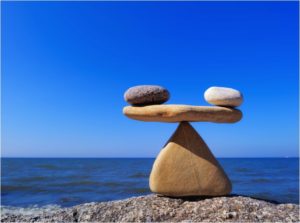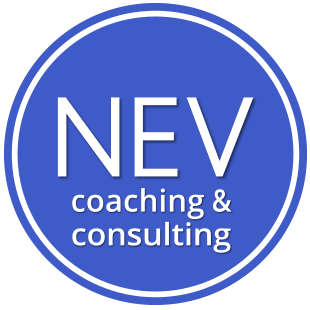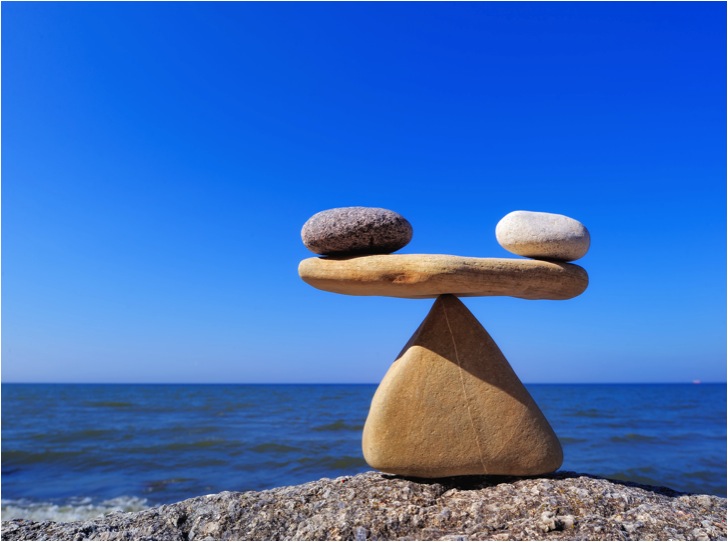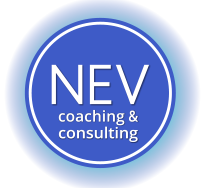 How is your Work-Life Balance?
How is your Work-Life Balance?
If you’re anything like me, you probably have a very intense work-life schedule, which much as it may inspire you (in my case it most definitely does), it can still become way too much.
In the best case, it is taking up too much of your time, energy, and life, even if you love it. In the worst case, you may be exhausted, uninspired, overwhelmed, or even burnt out.
This last one is a truly dangerous one because even if you are still “holding it together”, the nature of burnout is that it’s worst effects can sneak up on you suddenly and intensely in such a way that recovering from it can take a significant amount of time.
To ensure you don’t get to that point, here are some things to keep in mind:
1) Work-life balance is a marathon, not a sprint.
What this means is that if you are an inspired, successful and engaged professional, especially if you have a diverse and demanding set of work responsibilities or projects, it is normal to have “crunch” periods that require extra time and effort to effectively execute and get through.
That is ok, as long as it is not the majority of the time. Things like working weekends, holidays, vacations, should be reserved for only the utmost important and urgent situations. Never as a regular practice.
Easier said than done?
Yes.
But even large multinationals are recognizing the danger of pushing their professionals to extremes and if yours is not, you have the right to have a conversation around that.
Because the reality is that this kind of intensity not only leads to burnout but also more serious health and business difficulties like something called “catastrophic leadership failure” that can have terribly detrimental consequences for both the leader, their team and the organization as a whole.
It’s not about being weak, it’s about working smart.
The idea is to look over the long term – are you, in general, finding a balance or are you consistently breaking that balance? For a great TED talk on this subject, please see Nigel Marsh on “How to make work-life balance work”.
2) Work-life Balance requires you to learn and respect your Limits.
This is a common topic nowadays but very few of us truly work on it and the implications are huge. Learning to understand your SELF, in all its fundamentals – physical, mental, emotional, spiritual – and where you are struggling and why, is critical to comprehending and then achieving the optimal level of productivity, fulfilment, and enjoyment out of your current work and life.
Are your regularly not sleeping or eating poorly? When is your concentration at its best? What are your current feelings about your work and life and what might that mean for you?
Are you engaging in activities like sports, hobbies, time alone and with loved ones, time away to disconnect, that help you recharge?
What positive or negative habits are facilitating or impeding your best life experience and performance? And there are many more.
We are not just here to work, that may sound like a shock and challenge to some. I was there once too, but when we find the overall best balance, everything else comes together in a more natural, easy, productive and successful way.
3) For Work-Life success, organization is KEY.
No matter how organized and prioritized you think you are, likely there are still ways that you can make your time and work more efficient, delegate, or entirely eliminate certain tasks.
If this feels difficult at first, it’s normal, as it’s often one of the greatest challenges. But working with a good coach you can still find viable solutions for how best to both change your perspective around your responsibilities, as well as structure them in a way that truly works for you.
The bottom line is understanding your priorities and the “WHY” behind them.
Right now, too many things can feel like a priority, not the least because there may be people pressing on you to make them so. And self-worth and assertiveness may be an aspect as well.
But once we look in more detail as to what is truly necessary, how to most efficiently and effectively make it happen, and how to make your team or other supporters better help you in the process, you will see that there are options. And when they are implemented, and you get used to it, you will wonder why you ever struggled in the first place.
4) Vacations are where the MAGIC happens.
This is no small topic, though it can feel like one. Especially when many of us don’t have the time, permission or money to get away as we need.
But when we remain in the same environment and routine it becomes all too easy to continue our usual habits and thoughts and very difficult to tap into new insights, conversations, or visions of possibility. My husband and I often have our best moments of reflection and revelation when we are away, even for just a night or two.
No matter how much you may love your home, or feel pressured to accomplish the million things you need to do there, you have to leave it regularly to both appreciate it, as well as to gain the kinds of insights that will truly take you higher. And by “higher”, I mean to ideas, solutions, and realizations that will help you push your life, work and circumstances to more meaningful and successful levels.
Here is how we do it:
It is as simple as this: make a calendar for your entire year. It doesn’t matter when you start, just do it for the rest of the year and as far after that as you can.
And here is the key: not only plan but book your vacations ahead of time, at least six months, even if you don’t exactly know what will happen. Most platforms and places have a cancellation policy very close to the date of arrival.
We all know that if we wait for “the right moment” to get away, we will never find it.
But if we plan those moments in advance, around public holidays, schools schedules, and personal necessities, and reserve them and save up in advance, it will become SO much more difficult to cancel them from your schedule than look for ways to make them happen in the first place.
But the reward is unbelievable and it does not have to be complicated or expensive!
Even with one or two nights away, in the most economic circumstances you can find and afford, visiting friends or being in the wilderness, or enjoying a new city, will give you a lift that you undoubtedly will need and will make coming back refreshing.
Life is too short my friends. And as my dear partner once said: “it is arrogant to think we have time to waste”. This was when it really hit home for me.
What have been your own tricks and lessons for maintaining your own work-life balance? What insights have you learned that you think others could benefit from?
Share with us here and contact us always with your questions.


